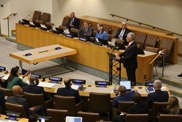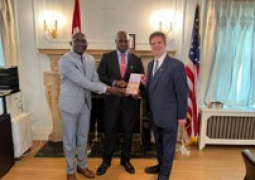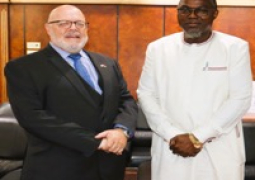
He made this statement on Wednesday at the United Nations General Assembly, in New York, where he noted that “we call for the adoption of universal, redistributive and solidarity policies, with the commitment to leave no one behind”.
He further stated: “We are ready to develop scientific and health exchanges with interested countries and provide advice to promote international collaboration.”
The Cuban leader reiterated that in this mission, Cuba also makes available to everyone its epidemiological, clinical and laboratory protocols, the results of research in the development of innovative next-generation medicines, as well as those of scientific research.
“Each country can and must contribute what is within its reach,” he added, saying: “The benefits must be universally accessible to all. To advance along that path, always count on Cuba.”
Also, he promised to offer his nation’s experience in response to the pandemics, as Cuba has made “its technological and scientific capabilities and its human resources available to everyone to help in the prevention, preparation and response to present and future pandemics”.
This time at the meeting on Prevention, Preparedness and Response to Pandemics, President Miguel recalled that “Covid-19 imposed on us a sad and bitter lesson of which we are obliged to learn”.
The health emergency “revealed the fragility of health systems and laid bare the cruelty of the inequities” that characterise the world, he said.
“Despite the adversities, our biopharmaceutical industry and the potential of Cuban scientists allowed us to create in record time, three vaccines and two vaccine candidates against Covid-19.”
President Díaz-Canel emphasised that while at the worst moment of the pandemic, transnational corporations and the richest states in the West had monopolised the necessary means to combat the disease.
He revealed that Cuba collaborated by sending 58 medical brigades to 42 countries and territories, where they joined more than 28 thousand of their health professionals who at that time were providing services in 59 nations.
For this reason, he confirmed that Covid-19 “showed that global cooperation is a necessity, not a choice”.





